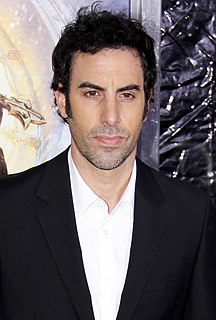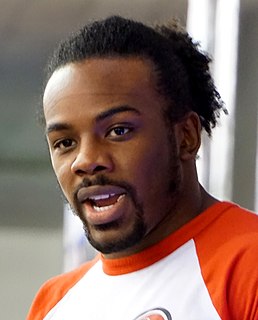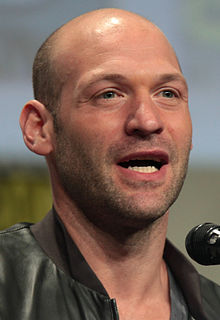A Quote by Sacha Baron Cohen
Dictators are ludicrous characters, and, you know, in my career and in my life, I've always enjoyed sort of inhabiting these ludicrous, larger-than-life characters that somehow exist in the real world.
Related Quotes
We all have to show up and do our job regardless of our life circumstances or situations. We don't have to do it with an attitude or whatever but maybe we do that day. Everyone understands that life happens and we have to create a whole other life where our life doesn't even exist. You know, our real life doesn't exist, these characters exist. And that is our life. And that's who we are.
If I can get the audience to connect with the characters emotionally - and they love who they are, they love the larger-than-life situation that they're in, but most of all get the audience invested in the characters - then I always feel like I can sort of put them in the most outrageous circumstances, and the audience is okay to go with that.
But to be perfectly frank, this childish idea that the author of a novel has some special insight into the characters in the novel ... it's ridiculous. That novel was composed of scratches on a page, dear. The characters inhabiting it have no life outside of those scratches. What happened to them? They all ceased to exist the moment the novel ended.
It's funny what [producer Richard Zanuck said about even though you can't quite place when the book or the story came into your life, and I do vaguely remember roughly five years old reading versions of Alice in Wonderland, but the thing is the characters. You always know the characters. Everyone knows the characters and they're very well-defined characters, which I always thought was fascinating. Most people who haven't read the book definitely know the characters and reference them.


































